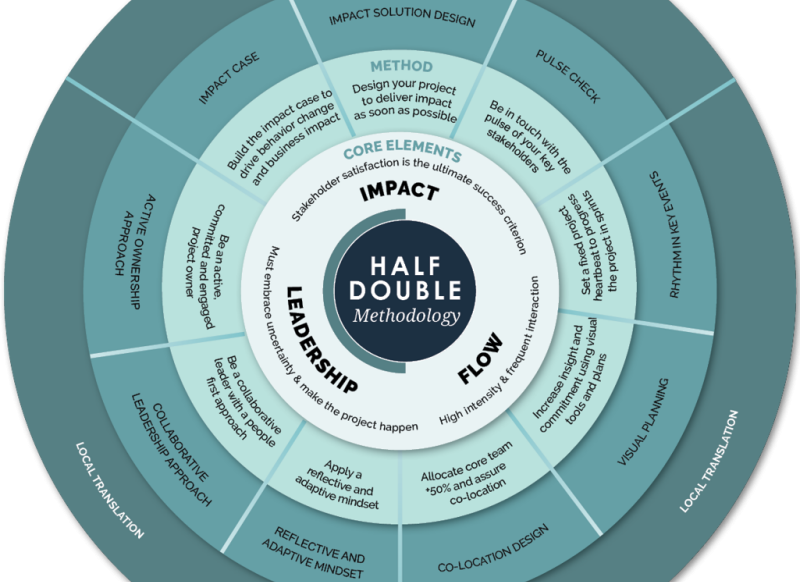Hybrid Project Management: The Future of Project Success
Traditional project management approaches, such as waterfall and stage-gate models, have proven their value over the years. However, the emergence of agile methodologies has challenged their dominance, especially in software development and IT projects. At the Half Double Institute, we believe that the future of project management lies in a hybrid approach, which combines the strengths of both traditional and agile methods to create more robust and adaptable project management practices.
The Evolution of Project Management
For decades, traditional project management methodologies have provided a structured and systematic approach to project execution. These methods, characterized by sequential phases and meticulous planning, have been the gold standard for managing projects across various industries. However, the rapid pace of technological advancements and market changes has exposed the limitations of these rigid frameworks.
The agile methodology emerged as a response to these limitations, emphasizing flexibility, iterative development, and customer collaboration. While agile has proven highly effective in certain contexts, particularly in IT and software development, it has not demonstrated the same level of success across all project types. This has led many organizations to seek a middle ground—a hybrid approach that leverages the strengths of both traditional and agile methodologies.
Understanding Hybrid Project Management
Hybrid project management integrates the structure and predictability of traditional methods with the flexibility and responsiveness of agile practices. This approach allows project managers to tailor their strategies to the specific needs of each project, adapting to changing requirements and stakeholder expectations.
Think of hybrid project management like a skilled chef creating a unique dish by combining the best ingredients from various cuisines. Just as the chef adjusts the recipe based on the available ingredients, the season, and the preferences of the diners, hybrid project management involves customizing the approach to fit the project's context, phase, and team dynamics. It’s not about following one rigid recipe but about being flexible and innovative to achieve the best outcome.
The Benefits of Hybrid Project Management
- Flexibility and Adaptability: By combining traditional and agile methods, hybrid project management provides the flexibility to adapt to changing project requirements while maintaining a structured approach to planning and execution.
- Improved Risk Management: Traditional project management's thorough risk assessment and mitigation strategies complement agile's ability to quickly respond to unforeseen issues, leading to more robust risk management.
- Enhanced Stakeholder Communication: Agile practices emphasize regular communication and collaboration, while traditional methods ensure comprehensive stakeholder analysis and engagement. Together, they ensure that all parties are informed and involved throughout the project lifecycle.
- Resource Optimization: Hybrid project management allows for more efficient resource allocation by blending the predictive planning of traditional methods with the adaptive resource management of agile practices.
- Higher Success Rates: Research indicates that projects utilizing hybrid methodologies have higher success rates compared to those relying solely on traditional or agile methods. This is because hybrid approaches are better suited to handle the complexities and uncertainties of modern projects.



